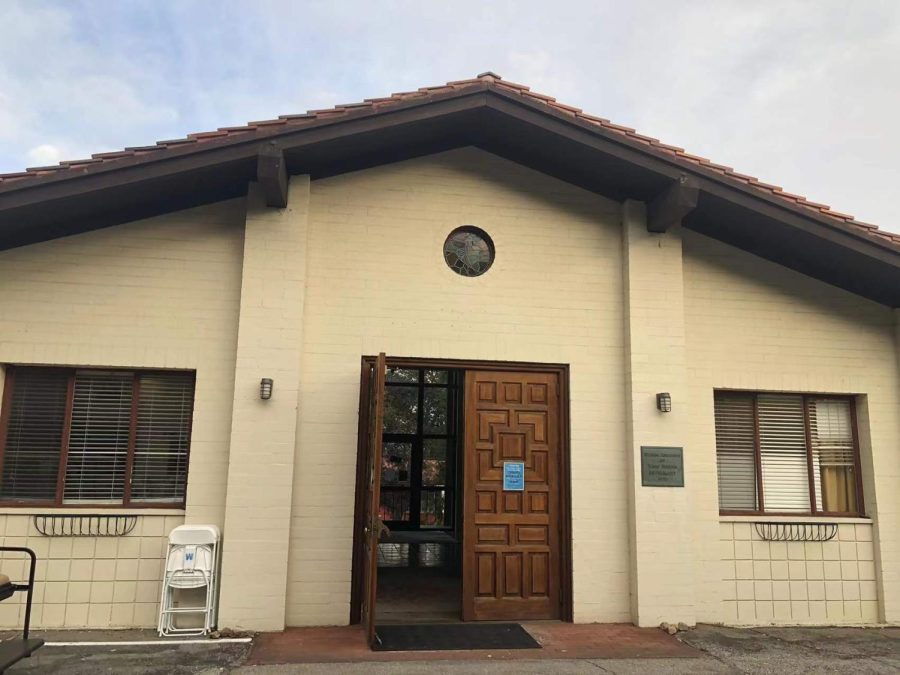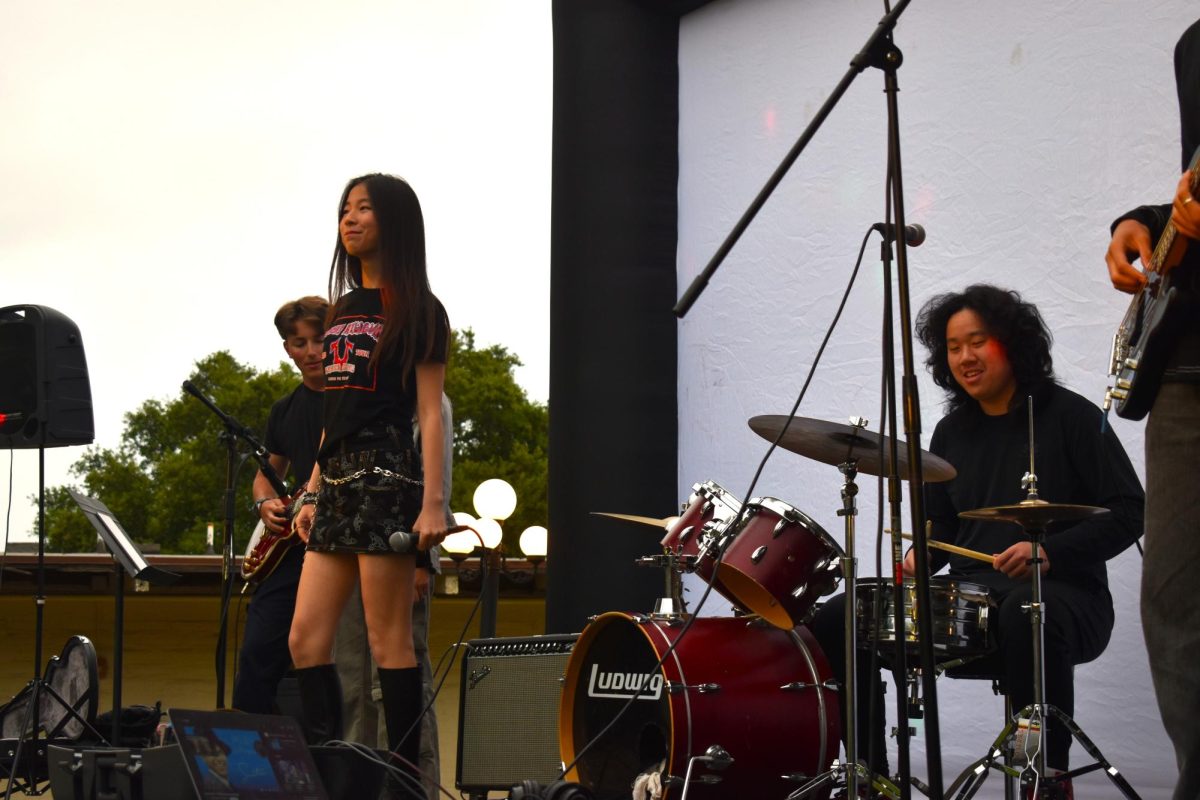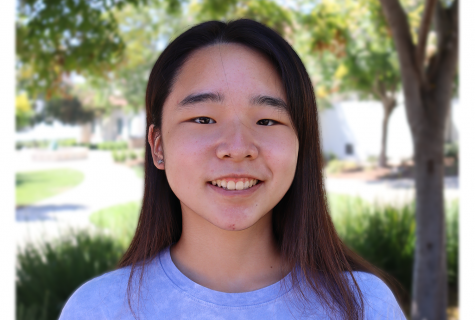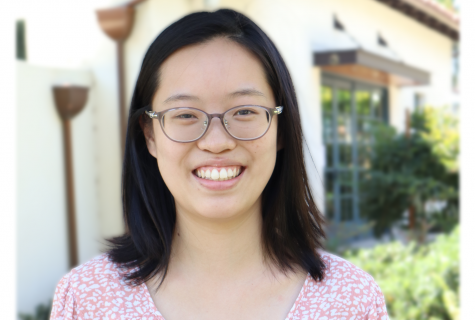The Webb Canyon Chronicle prepared 16 burning questions for the health center to answer. In the following interview, we spoke to Melanie Bauman, Director of Counseling and Health Education, about the current COVID-19 situation on campus.
*Note: The quotes in this article are only parts of the interview, so they do not represent the complete conversation. They were selected and organized in a way that we believe would provide the most accurate and digestible information.
Q1: Can you give us a big picture of the COVID situation at Webb?
A: We don’t release medical information to the community at large. Any medical information is considered HIPAA compliant. The one thing that has happened is we’ve done a couple of community notifications. The difference there is that we are notifying based on public health. Public health guidelines, sort of, trump HIPAA, but they don’t actually override the details. And we do [the community notifications] for those who were on campus and may have had contact with another person.
As an example, over break, we have people who tested positive for COVID. But they have no contact with anybody in the community because they were on break. We don’t notify [the community] about that information. So that’s why you’re not going to get an accurate count.
But I can tell you that we currently [January 10, 2022] have four students who are in the gym. Two students are coming over from the hotel. In terms of positivity rates, we’ve seen almost equal numbers between boarders and day students.
Q2: Are the current cases mostly the Omicron strain? Or are there also Delta cases?
A: To know whether or not it’s a particular variant, you have to do much higher-level testing, and that generally is not done at a standard testing site. Webb doesn’t know whether it’s Omicron, Delta, or the original COVID. However, the symptoms that we are seeing align with Omicron. The speed of transmission that we’re seeing people get infected aligns with Omicron. The severity and, more accurately, the lack of severity of most symptoms, align with Omicron. So, all of those things point to the fact that what we’re seeing is Omicron. But it’s not a guarantee, and we won’t ever actually know for sure.
Q3: Is it still possible for fully vaccinated and even boosted students to contract covid?
A: Yes, we are seeing what are called breakthrough infections. However, those breakthrough infections are far less severe. So, we’re seeing more common cold symptoms, than lung respiratory issues.
Q4: What is Webb’s current contact tracing policy? What counts as a close contact?
A: This has changed recently. With the original COVID, we were incredibly concerned about any kind of contact, because of its severity and we didn’t have vaccines. Now we’re seeing [that] the variant lessens the severity of a virus. Because of the lessening of that severity and because of the rapid spread of Omicron, contact tracing isn’t quite as important in the same way. It’s not a very good use of resources.
The LA County Department of Public Health and the CDC has recently changed contact tracing guidelines. Now contact tracing is really focused on who is the most likely to have gotten some kind of infection from you.
The reason for contact tracing is to notify people to let them be aware of their symptoms. Somebody like a roommate would be contact traced. Somebody who is like making out with someone, those are high level contacts, that’s who we would focus on. And that’s the only contact tracing that’s now being followed up on in the county, LA, in general.
Q5: Would students be notified of new COVID cases on campus?
A: [As of January 10, 2022], We have only had one case that we had to do any kind of notification of a close contact so far. Otherwise, we haven’t had to do that since last week, since Friday. We’re still monitoring our entire community at the level that we would for close contact. That’s why you’re all being tested twice a week. So, close contact and non-close contact [students] are all getting the same amount of screening at this point.
There isn’t really a benefit of notifying someone unless there’s a known specific aggressive contact, in which case we’re asking people [whether they have] had any symptoms and make sure that [they are] being really careful.
The exception to this is that we do have people who are not able to be vaccinated, who are either not eligible or for medical reasons, those people are in higher alert. Or if they have a medical issue that puts them at higher risk, then those people would get notifications, if we know that there’s a risk to them.
Q6: Under what situation will Webb go online? How many cases is the threshold?
A: It’s not a particular number of cases because the number of cases doesn’t really tell us what everybody is able to manage. Right now, our goal is to slow the spread as much as possible. We know that we’re going to have positive cases, we want to make sure that we can keep everyone who is positive safe in a space where they’re not spreading to other people. If that got out of control, that might be a space where we kind of shut down access to particular things.
If for some reason we couldn’t sustain the [number of] students who were ill, or we couldn’t sustain the number of faculty who were ill, then that might be a time where we go online temporarily, to manage. But we’re really not even close to that right now. We have the capacity to manage much more than we are currently managing.
Q7: What is the capacity for Webb students to be isolated on campus?
A: The isolation center up at the gym has 14 beds, [with a] room of four, and a room of 10.
We also have so many singles on campus. So, if we needed to get to a space where we were needing to isolate more people, we could potentially use dorm rooms as well.
And then if we need to, we can move into hotels too. We’d likely do that before we would use dorms because that mitigates spread. The reason that we don’t have the hotel anymore, and we’re moving people here is to have everybody in one space so that we’re not spreading our staffing too thin and making sure that we can actually check in with people.
And there’s an element of if you’re in the isolation center in the gym, you have social interaction, you have people that you can hang out with, you can go outside with a little bit more freedom. It’s a different kind of comfort, because a hotel has some comfort too.
Q8: In a situation of roommates, what happens when one person contracts COVID or is identified as a close contact?
A: If one person tests positive, the roommate’s considered close contact. Usually, they’ll have to quarantine, but it depends on the vaccination status.
If one roommate is only a close contact, their roommate will quarantine if they need to, or they’ll be tested more regularly to make sure that they’re not testing positive.
Q9: Have there been any linked cases at Webb?
A: You can only make guesses about linked cases. So, certainly, if someone lives in a room with someone or was on vacation with someone, you would anticipate that that might be a more likely case that they may get sick. But in truth, you never actually know. We have lots of connection points.
Q10: Will Webb cancel future events like the Stress-Less week? What about the Dance Show? And if the current trend continues, Unbounded?
A: There’s no current plan to cancel stress-less week, the PAs are working on it right now. They are doing a scaled-back version, but that’s mostly because of everybody’s current bandwidth. We did have to cancel the puppies because we can’t have outside vendors. They’ll come back in the spring. But we’ll do other things instead.
The dance show is also not something that we’re looking at cancelling. If we needed to reschedule it, because a number of dancers were out, that might be something we’d be more likely to do than just a cancellation.
Unbounded is not something that we’re worried about right now at all, for a couple of reasons. One is that it’s a long way off. People already have their plans in place. So, there’s no reason to cancel anything, it’s just we’re kind of in a holding pattern. But the other reason is that when you look at Omicron and the way that other countries experienced it, we’re not expecting that by the time we get to Unbounded that we’ll be dealing with this version of COVID.
We should be done with this version of COVID within the next couple of weeks, that’s sort of the modeling and expectation that we have.
Q11: From your perspective, how has COVID-19 impacted Webb students’ mental health?
A: From the beginning, COVID has impacted us and caused a lot of loss, a lot of grief, a lot of uncertainty. And a lot of those things have increased anxiety and depression symptoms. Our systems have been pushed and pulled in so many different ways that many more of us are having those experiences a bit more frequently.
In the early stages of the pandemic, we were missing our friends, and we were feeling alone. We were not having social interaction, which has shifted now. Now what we are dealing with is: we have two years of telling ourselves COVID is dangerous, which is where anxiety comes from.
It’s pretty varied. I see some people really struggle with social interaction. Some people are struggling with what it means to support yourself. Some people started struggling with asking for help. Some people learned to ask for help.
Even in moments of crisis, there are some positive things that come out of it. People are talking about mental health more openly. In general, our campus feels more connected and closer, and we hold on in a different way to the things that are important to us. We don’t want to shut down again. It was a traumatizing experience. This means that there is a fear that people are still remembering, but it also tells us that this is something people don’t want to lose, that they are recognizing the value in this space.
Q12: Will Webb continue to allow indoor dining?
A: Right now, there are a few spaces for indoor dining when it is very cold. We always have to thread the needle between a bit of comfort and safety and best practice to make sure that we are staying healthy. It does put the responsibility on students to make sure that if they are eating with people, and this is the same for faculty and staff as well, that they try to take as little risk as possible. But we also know that human interaction is a real part of our lives here, and we cannot completely take it away. I have seen a couple of times where people get comfortable being back to normal and forget to put their mask back on. We have to remind ourselves of that. It is a challenge for all of us.
Q13: Can we expect any changes to weekend protocols for boarding students?
A: For weekend protocols, we don’t make them too far out right now. Because we want to be able to pivot and give students opportunities to have a life. The protocols will be the same for the upcoming weekend [the weekend of January 14] because we are anticipating that this week, we will still have more positive cases. And then we will reassess for next weekend.
Q14: What has it been like working at the Health Center the past week? It must have been quite a crazy week.
A: Busy, but in a different way. Sometimes it feels like we are hurrying up for a crisis that is not there. Because ultimately, even students who are sick are not that sick. So, it feels like a crisis sometimes, but I have been through far worse crises both at the school and with students and in other spaces that have been more life-threatening or more concerning.
There’s something invigorating for me personally about being busy and seeing people come together. It is this humbling recognition that there are so many people that love each other and care about each other that is strangely life-affirming. There are many times where I feel very grateful to work in a community where people care about each other. And that just keeps showing up over and over.
Q15: What are some things students can do to protect themselves?
A: Students should get their booster shots as soon as they become eligible. As always, wearing a mask and maintaining healthy lifestyles are important because we know that it is mostly aerosol spray, like spit, in our conversations, in our laughter, and our general being with one another that is spreading any kind of COVID.
Q16: What does the future of Webb look like in the next couple of weeks? When will we be able to return to pre-winter break situation?
A: We are thinking probably three or four weeks maximum. Three weeks is probably more accurate. What we are going to see is people coming back and people leaving. That means we are doing a good job of slowing our spread and not getting everyone sick at one time. We cannot overload the healthcare system and cannot afford to have everyone sick at the same time. We just have to make sure that we are slowing the spread, knowing that many people will get sick, many people will be close contact, and many people will not even know that they are sick when they get sick. The medical advisory board meets every week to make adjustments to our policies based on what they are seeing. Right now, all athletic competitions are suspended until January 21, and this week’s meeting is going to determine the upcoming plan for sports competitions.
















